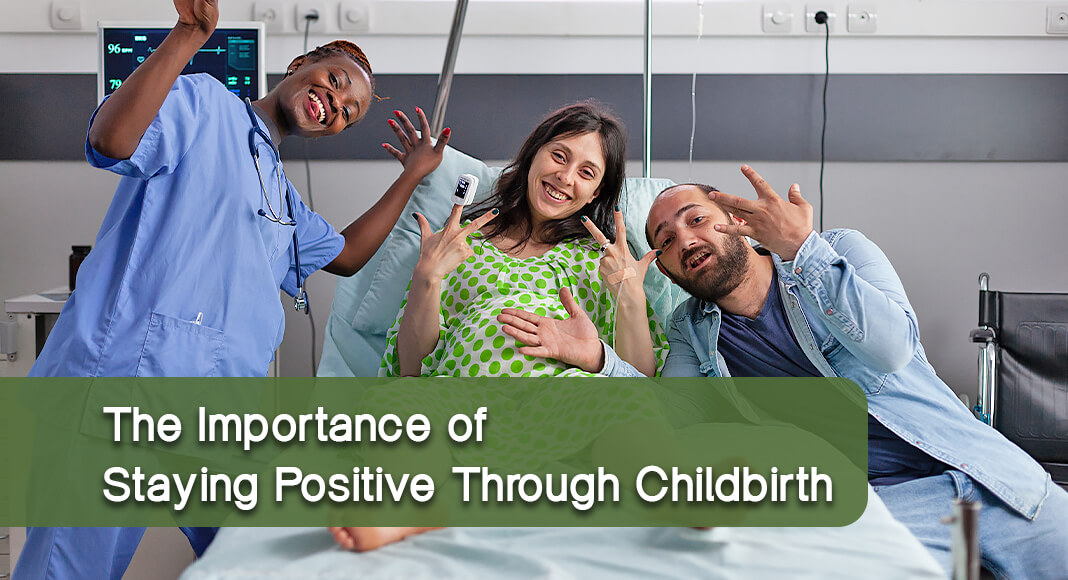
Mega Doctor News
By University of South Australia
Newswise — Up to 60% of women experience some fear about giving birth, especially for the first time, but a new study shows why some women are more likely to stay calm and confident in the lead-up to childbirth.
In a global first, researchers from Robert Gordon University in Scotland and the University of South Australia (UniSA) investigated the factors that help ease childbirth fears, rather than stoke them.
They surveyed 88 pregnant women in their third trimester before attending antenatal classes in north-east Scotland.
Researchers used the Warwick-Edinburgh Mental Wellbeing Scale to measure the link between mental wellbeing, a woman’s belief in her ability to manage the challenges of labour, and fear of childbirth. While 12% exhibited ‘severe’ fear of childbirth (FOC), those who were more positive, confident and in meaningful relationships reported fewer concerns.
The findings are published in the Journal of Psychosomatic Obstetrics & Gynecology.
Lead author Dr Katrina Forbes-McKay says the results provide valuable insights into how antenatal care could be improved to foster confidence, enhance positive emotions and ultimately support healthier births for mothers and babies.
“While many studies have explored the negative effects of childbirth fear, including prolonged labor, emergency caesareans and postpartum mental health issues, there has been little research into what protects women from experiencing those fears,” Dr Forbes-McKay says.
“Our findings highlight the need for antenatal care that doesn’t just teach women what to do during labor but also empowers them to believe they can do it.”
Co-author UniSA Professor Tracy Humphrey says the study found that a woman’s sense of mental wellbeing was the strongest predictor of how fearful she felt about giving birth.
“This includes having a sense of purpose, emotional positivity, and meaningful social relationships – all things that are often overlooked in maternity care,” Prof Humphrey says.
“The second key predictor was childbirth self-efficacy – particularly whether women believed they could apply coping strategies when the time came.”
The study calls for antenatal programs to shift from a solely medical model to one that builds self-belief. Specifically, it recommends that childbirth education:
- Fosters confidence in the use of labor techniques such as breathing, visualization and relaxation
- Enhances psychological wellbeing by supporting social connection, purpose and satisfaction
- Embraces an approach that focuses on wellness rather than the risks
Although this study was restricted to women in the third trimester, further research has been undertaken on the role of antenatal relaxation practices in improving maternal well-being and childbirth experiences.
Robert Gordon University midwifery lecturer Dr Mo Tabib led the study as part of her PhD, under the supervision of Dr Forbes-McKay and Professor Humphrey.
“Women who incorporated these relaxation techniques reported “significant improvements” in their mental wellbeing and confidence in approaching childbirth; improvements which remained stable until 4-8 weeks after birth,” Dr Tabib says.
“The findings align with global priorities from the World Health Organization to promote the mental and physical health of women during pregnancy.
“By addressing fear of childbirth through psychological and educational interventions, we not only support women to have more positive birth experiences but potentially reduce medical interventions and improve outcomes for mothers and infants,” she says.
The researchers are now calling for larger, multi-site studies to validate these findings across diverse populations.
‘Predicting fear of childbirth during pregnancy, the positive role of self-efficacy and mental wellbeing: a cross-sectional study’ is co-authored by Katrina Forbes McKay, Mo Tabib and Tracy Humphrey. DOI
10.1080/0167482X.2025.2527658










